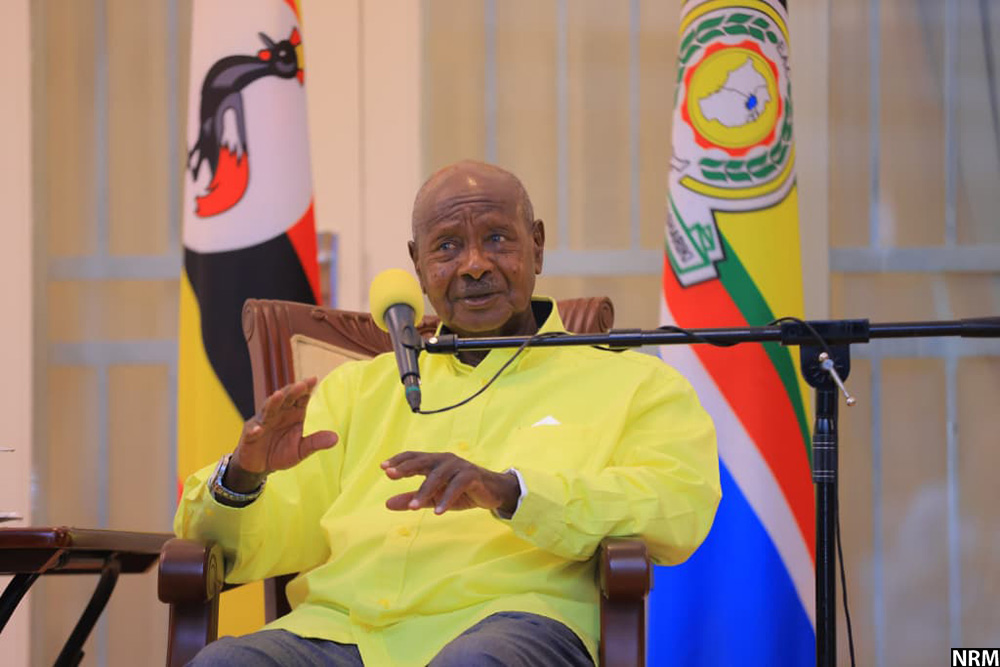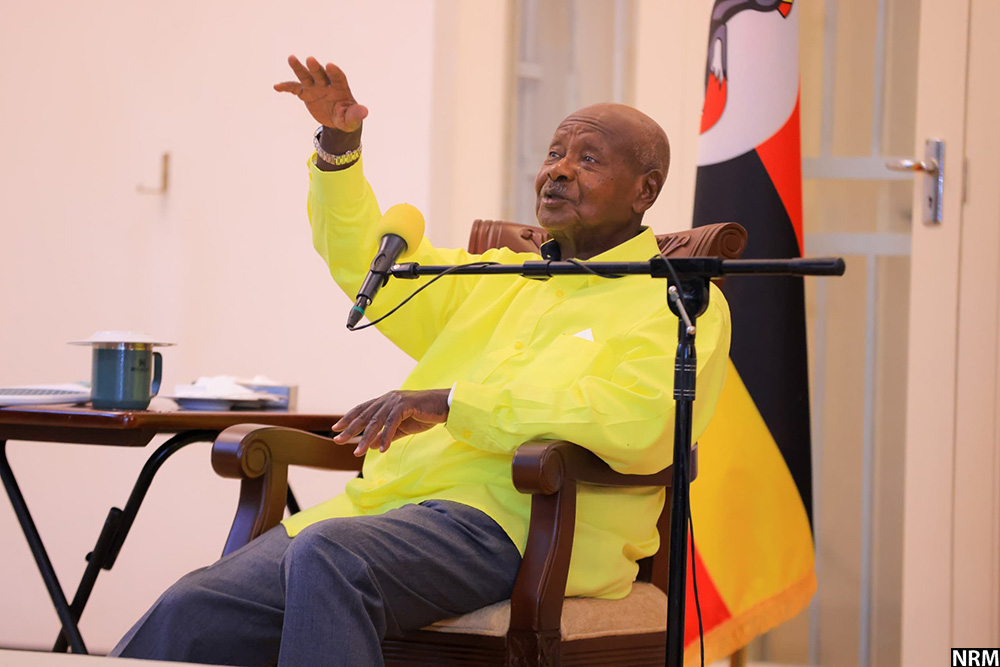News
Museveni explains new cattle restocking plan in Acholi, Lango, Teso
Museveni reiterated on November 5, 2025, that each homestead in the three sub-regions will receive five cows during his next mandate, with Acholi being given special consideration for having borne the brunt of the Lord’s Resistance Army (LRA) insurgency.
Museveni explains new cattle restocking plan in Acholi, Lango, Teso
By: Umaru Kashaka, Journalists @New Vision
____________________
President Yoweri Museveni has elaborated on his new cattle restocking plan for the three sub-regions of Acholi, Lango, and Teso.
The three sub-regions, along with Karamoja, faced years of insecurity—first from rebellions and later from decades of cattle rustling.
Museveni reiterated on November 5, 2025, that each homestead in the three sub-regions will receive five cows during his next mandate, with Acholi being given special consideration for having borne the brunt of the Lord’s Resistance Army (LRA) insurgency.
“When the delegation of Acholi came, they said Acholi suffered the most and longest period during the LRA insurgency, and therefore, in addition to the five cows per household, we should also deal with the genuine claimants who lost so much,” he said.
He said that he was glad that both he and the community leaders in the three sub-regions had reached an agreement on the five-cow allocation per household.
“We are now going to involve the whole government; they will plan. It will not be implemented in just one season; it may take three or four years, but it will be implemented,” he assured the affected families.
He emphasised that the homesteads in the three sub-regions will receive the cows in instalments.
“It can be in instalments because the homesteads in Acholi, Lango and Teso are more than 1 million. There are about 1.5 million households. So, if you say five cows times 1.5 million households, that is like six or seven million cows. That is quite a bit of money,” he said.
Museveni, who is seeking re-election in the 2026 general election on the National Resistance Movement (NRM) party ticket, said the compensation will not be done all at once.
“So, it can’t be done at once, maybe after three years, but the Government will plan like it plans for the [National] Budget. If we had started 10 years ago, we would have finished by now. The important thing is to agree, as we seem to have done now, and move forward. The rest is details.”
He made the remarks while interacting with journalists from the Teso region during a live TV and radio talk show at State Lodge in Soroti city.
The NRM presidential candidate noted that while the Government had already spent sh159 billion on compensation claims across the three regions, many of the beneficiaries were questionable, and the process lacked transparency.

“The cattle in this area were destroyed by wars, and we tried to restock, but some other players opened up a case in the courts of law against the Government. Because I never like wars, I decided to discuss with them, and they started getting money from the government to pay their clients. Up to sh159b was spent in that exercise,” he said.
About the LRA insurgency
The LRA insurgency began in Acholi in 1987 under the command of Joseph Kony and spread into Teso in June 2003, bringing death and destruction to many areas.
The LRA relied heavily on the abduction of children for use as soldiers, and atrocities against the civilian population were common.
During the conflict, cattle rustling increased poverty in the area, and many young people grew up in internally displaced persons (IDP) camps, which disrupted their transitions to adulthood.
After the conflict, many communities had reduced access to education and health services due to the absence of qualified staff. Infrastructure, such as roads and transport link,s was also severely damaged.
Insecurity was a campaign issue for the opposition in both the northern and north-eastern regions during the 1996 and 2001 general elections. However, the return of peace in 2006 became a political turning point for Museveni in the region.
Since 2011, the NRM Government has been implementing war recovery programmes through the Northern Uganda Social Action Fund (NUSAF II) and the Peace, Recovery and Development Plan (PRDP II).
NUSAF and PRDP are affirmative action programmes designed to rehabilitate northern Uganda. Under these programmes, the government has constructed tarmac roads, built classrooms and teachers’ houses, supplied desks, and drilled boreholes, among other initiatives.